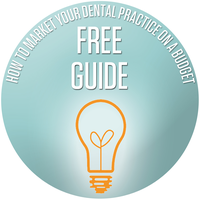
For a long time, researchers have been looking into how gum disease and heart health are connected. Inflammation and bacteria are often the main causes of problems in both oral and heart health.
A recent study suggests that gum disease might be linked to an irregular heartbeat, known as atrial fibrillation (AFib). According to the Journal of the American Heart Association, taking care of your oral health within three months after an AFib procedure could help reduce gum inflammation and decrease the chances of AFib coming back.
Join us as we explore the findings and learn about the link between gum disease and heart health.
Key Takeaways:
- Researchers have long studied the connection between gum disease and heart health.
- A new study indicates a potential link between gum disease and atrial fibrillation (AFib).
- Maintaining oral health shortly after an AFib procedure may reduce gum inflammation and lower the risk of AFib recurrence.
- Understanding gum disease, its symptoms, and preventive measures is crucial, as it can impact overall health.
- Dental professionals play a vital role in identifying gum disease and its potential heart health implications.
Understanding Gum Disease
Gum disease, also called periodontal disease, is an infection of the tissues that hold your teeth in place. It usually happens because of poor oral hygiene, which lets plaque—a sticky film of bacteria—build up and harden on your teeth.
Gum disease is common in the United States, affecting about half of adults aged 30 and older, according to the Centers for Disease Control and Prevention (CDC). As we age, the risk of gum disease increases.
In its early stage, gum disease is known as gingivitis, which causes gum inflammation. If not treated, it can progress to periodontitis, leading to tooth loss and other serious health issues.
Though it seems like a mouth problem, gum disease can affect overall health. Research shows that bacteria from gum infections can enter the bloodstream, causing inflammation throughout the body. This highlights the need to recognize and treat gum disease to protect both dental and overall health.

What is an Irregular Heartbeat?
AFib is a condition where the heart beats irregularly, increasing the risk of stroke by five times. By 2030, more than 12 million people in the U.S. are expected to have AFib, according to the American Heart Association.
The Science Behind Gum Disease and Heart Health
When bacteria from infected gums get into the bloodstream, they can stick to fatty deposits in the heart's blood vessels, forming clots. These clots can block blood flow, which might lead to a heart attack or stroke.
Additionally, inflammation from gum disease can increase overall inflammation in the body, making it harder for the heart to work well. This ongoing inflammation is a known risk for many heart problems, including irregular heartbeats. By understanding this link, dental professionals can help patients manage their heart health risks.

Conclusions of the Study
The study had some limitations, such as having only a few patients from one location, not using randomized treatment, and not following up on gum health and inflammation after the procedure.
Even with these limitations, the results suggest that treating gum disease might help improve AFib treatment success and lower the chance of it coming back. More research is needed to fully understand how gum disease and AFib are connected.
Recognizing the Symptoms
Detecting gum disease early is crucial to stopping it from getting worse and affecting heart health. Look out for symptoms like swollen, red, or bleeding gums, bad breath that won't go away, and loose teeth. Regular dental visits help catch these signs early.
In the same way, noticing symptoms of an irregular heartbeat, such as feeling your heart race, dizziness, or tiredness, can lead to quick medical help. If you have these symptoms, see a doctor to check for heart issues. Being aware and catching these problems early is important for managing both gum disease and heart health.
Preventive Measures
To prevent gum disease, keep up with good oral hygiene. Besides taking care of your teeth, living a heart-healthy lifestyle can lower the risk of heart problems. This means eating a balanced diet, exercising regularly, not using tobacco, and managing stress. By following these steps, you can protect both your teeth and heart, reducing the chance of related health issues.

The Role of Dental Professionals in Managing Overall Health
Dentists are often the first to spot signs of gum disease and its possible connection to heart health. By doing detailed oral exams and teaching patients about the risks of gum disease, they can help link dental care to overall health.
Working together, dentists and doctors can provide better care. By sharing information, they can create treatment plans that cover both dental and heart health, ensuring patients get the best care for their overall well-being.
Want to join the Solstice network? Connect with our dedicated provider relations team for more information about joining our network. You can call 1.877.760.2247 or email providerrelations@solsticebenefits.com.
Already in the Solstice network? Search to see if you're part of the Solstice dental PPO or HMO network. You can also go to https://www.mysolstice.net/ or call us at 1.877.760.2247.







